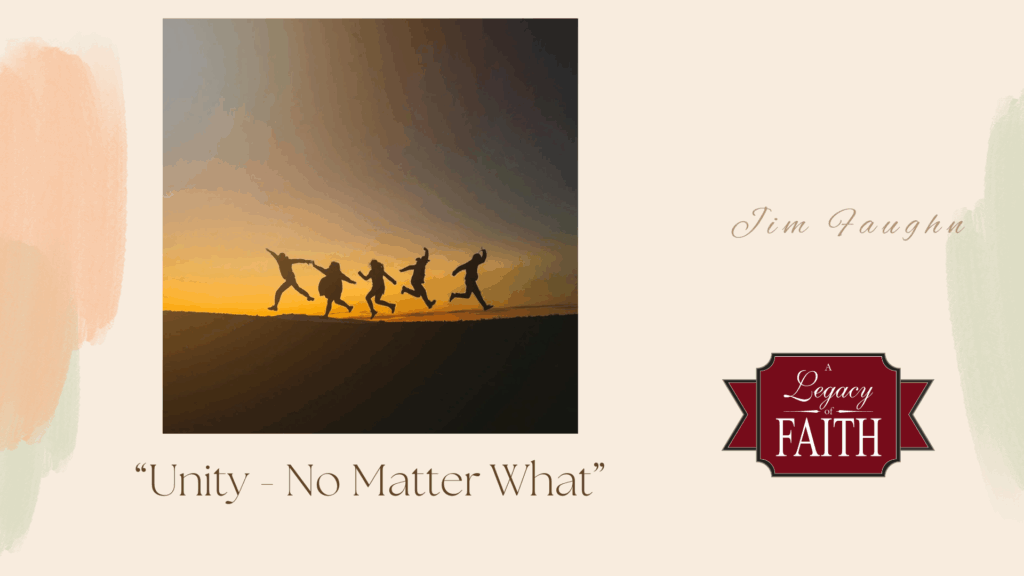“Unity – No Matter What”
That’s what the message was on a sign at a church building in our community. I’ve been thinking about that message ever since I saw it.
I cannot truly be loyal to Jesus if I’m not concerned about, praying for, and working toward unity. At the same time, I’m thinking that I cannot do all of those things no matter what.
Allow me to try to explain what I mean by that after I share with you a portion of the words that Jesus prayed to His Father very shortly before He went to the cross. As His thoughts transitioned from His apostles to “…them that believe on me through their word…,” He prayed:
that they all may be one; as thou, Father, art in me, and I in thee, that they also may be one in us: that the world may believe that thou hast sent me. (John 17:20-21)
To be sure, unity was on the mind of Jesus as He prayed. It is also clear that He viewed a lack of unity as a hindrance to belief in Him. While those things are true, we don’t need to overlook the connection between unity and the inspired message with which the apostles would be entrusted.
It might be helpful to remember that, not long after Jesus prayed the prayer recorded in John 17, He was on the cross. There was a strange and unusual combination of hatred, division, and unity that played a vital role in putting Him there.
One example of that has to do with two Jewish sects of that day. Pharisees and Saddducees were in opposition on a number of doctrines, but were united in their opposition to – and hatred of – Jesus. That “unity” was a factor in putting Jesus on the cross. Whatever else that could be said, it should be acknowledged that this arrangement was both temporary and artificial.
Another example can be found with regard to two officials of the government. As we read about the trials which led to the crucifixion of the Savior, we find these interesting and telling words: And the same day Pilate and Herod were made friends together: for before they were at enmity between themselves (Luke 23:12). This is yet another example of a temporary and artificial unity that played a role in the death of the Lord.
We now live in a world in which the most ungodly lifestyles, philosophies, beliefs, religions, practices, etc. are accepted and promoted. Not only are they accepted and promoted, we are now being told that people who do not celebrate what the Bible condemns are unloving and even unChristian.
How did we get here? How did so many who claim to be following the One who prayed for unity become so divided and divisive? Why has it gotten to the point where people who preach and talk about love actually practice hate? What makes people who promote tolerance become so intolerant with those who disagree with them?
For that matter, why would people whose stated intention is to follow Jesus produce creed books, catechisms, manuals, etc. that have the effect of dividing people? Why would any individual allow his or her opinions, preferences, or “comfort zones” to be of equal or greater importance than scripture?
I suppose that multiple volumes could be written to address questions like that, but I will suggest just one thing. It may not be all that profound, but I am hoping that you will give it some consideration.
It seems to me that the closer we get to Jesus and His Word, the closer we get to one another. That seems to me to be the answer to His prayer for true unity. A corollary to that might be that things which He condemns cannot be endorsed or practiced by those who are truly His followers.
Genuine unity includes a genuine connection to God’s Word, submission to the will of Jesus, and true fellowship with His followers. People can form temporary unions, but unity is eternal.
So – count me in for “unity,” but count me out for “no matter what.”
AUTHOR: Jim Faughn



